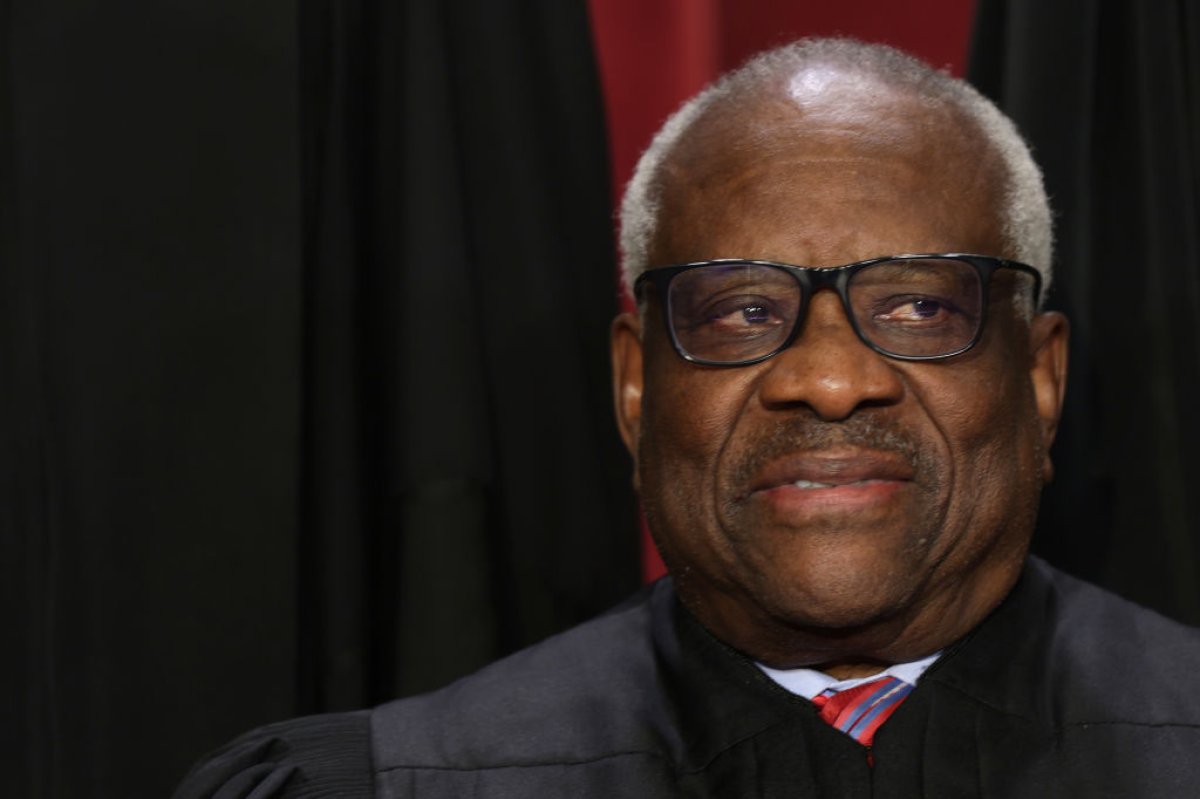U.S. Supreme Court Associate Justice Clarence Thomas may have broken the law by refusing to recuse himself from a high-profile Supreme Court case, according to legal scholar Laurence Tribe.
Tribe, professor emeritus at Harvard University, told MSNBC's Lawrence O'Donnell that Thomas may have violated 28 U.S. Code § 455 because he has not disqualified himself in Moore v. Harper, a controversial case about the power to draw and strike down electoral maps.
The statute cited by Tribe deals with federal judges disqualifying themselves from cases and he argued that Thomas was in violation of the law because of "two provisions that almost any lawyer would say require Clarence Thomas not to participate at all."

"One of them says that a justice—and it specifically applies to Supreme Court justices—may not participate if somebody could reasonably question that justice's impartiality," Tribe said.
"Clearly that's the case here," he said, and he also cited a section that says a justice shouldn't be involved if their spouse has an interest in the case.
"It's obvious that Ginni Thomas has an interest," Tribe said. "She was an active participant in the attempt to use something like the independent state legislature theory that was before the court on the argument on Wednesday and Clarence Thomas happily participated anyway."
In Moore v. Harper, North Carolina Republicans are asking the Supreme Court whether state courts have the legal authority to throw out electoral maps and order districts to be redrawn. The justices are considering the so-called "Independent State Legislature theory," which holds that courts do not have the power to strike down maps drawn by state legislatures.
The outcome of the case could have a profound effect on U.S. elections, with the Brennan Center for Justice previously calling Moore v. Harper "an appeal advocating for extreme interpretation of the Constitution that could make it easier for state legislatures to suppress the vote, draw unfair election districts, enable partisan interference in ballot counting."
Thomas' wife, conservative activist Virginia "Ginni" Thomas, has been the center of controversy over her conversations with former White House chief of staff Mark Meadows, who she encouraged to continue efforts to overturn the 2020 election results.
Tribe said that Clarence Thomas' questions had been "pointed" and that he "tried to trap the defenders of a democratic approach to this" through his questioning.
However, Tribe said the statute on recusal was very difficult to enforce and he doubted the Department of Justice would take any action.

O'Donnell asked Tribe about enforcing the statute in question and Tribe acknowledged that it was not effectively enforced, even though it applies to Supreme Court justices.
He said 28 U.S. Code § 455 "says it shall be unlawful for a justice to do what it seems that Clarence Thomas, as a Supreme Court justice, has done."
"People who think these rules don't apply to justices are wrong," Tribe went on. "They apply. That law applies—it uses the word 'justice' and the only judges in the federal system who are justices are the nine that we see all the time sitting in the marble palace."
Newsweek has asked the Supreme Court for comment.
Uncommon Knowledge
Newsweek is committed to challenging conventional wisdom and finding connections in the search for common ground.
Newsweek is committed to challenging conventional wisdom and finding connections in the search for common ground.
About the writer
Darragh Roche is a U.S. News Reporter based in Limerick, Ireland. His focus is reporting on U.S. politics. He has ... Read more
To read how Newsweek uses AI as a newsroom tool, Click here.








